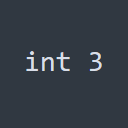Hey everyone, thank you for your patience, and thank you to everyone who engaged constructively. It is clear based on the feedback we’ve received that a bigger discussion needs to take place, and I’m not sure my personal repository is the best place to do that - we are looking for a better forum and will update when we have found one. We want to continue the discussion and collaborate to address your core concerns in an improved explainer.
I want to be transparent about the perceived silence from my end. In the W3C process it is common for individuals to put forth early proposals for new web standards, and host them in a team member’s personal repository while pursuing adoption within a standards body. My first impulse was to jump in with more information as soon as possible - but our team wanted to take in all the feedback, and be thorough in our response.
That being said, I did want to take a moment to clarify the problems our team is trying to solve that exist on the web today and point out key details of this early stage proposal that may have been missed.
WEI’s goal is to make the web more private and safe The WEI experiment is part of a larger goal to keep the web safe and open while discouraging cross-site tracking and lessening the reliance on fingerprinting for combating fraud and abuse. Fraud detection and mitigation techniques often rely heavily on analyzing unique client behavior over time for anomalies, which involves large collection of client data from both human users and suspected automated clients.
Privacy features like user-agent reduction, IP reduction, preventing cross-site storage, and fingerprint randomization make it more difficult to distinguish or reidentify individual clients, which is great for privacy, but makes fighting fraud more difficult. This matters to users because making the web more private without providing new APIs to developers could lead to websites adding more:
sign-in gates to access basic content invasive user fingerprinting, which is less transparent to users and more difficult to control excessive challenges (SMS verification, captchas) All of these options are detrimental to a user’s web browsing experience, either by increasing browsing friction or significantly reducing privacy.
We believe this is a tough problem to solve, but a very important one that we will continue to work on. We will continue to design, discuss, and debate in public.
WEI is not designed to single out browsers or extensions Our intention for web environment integrity is to provide browsers with an alternative to the above checks and make it easier for users to block invasive fingerprinting without breaking safety mechanisms. The objective of WEI is to provide a signal that a device can be trusted, not to share data or signals about the browser on the device.
Maintaining users’ access to an open web on all platforms is a critical aspect of the proposal. It is an explicit goal that user agents can browse the web without this proposal, which means we want the user to remain free to modify their browser, install extensions, use Dev tools, and importantly, continue to use accessibility features.
WEI prevents ecosystem lock-in through hold-backs We had proposed a hold-back to prevent lock-in at the platform level. Essentially, some percentage of the time, say 5% or 10%, the WEI attestation would intentionally be omitted, and would look the same as if the user opted-out of WEI or the device is not supported.
This is designed to prevent WEI from becoming “DRM for the web”. Any sites that attempted to restrict browser access based on WEI signals alone would have also restricted access to a significant enough proportion of attestable devices to disincentivize this behavior.
Additionally, and this could be clarified in the explainer more, WEI is an opportunity for developers to use hardware-backed attestation as alternatives to captchas and other privacy-invasive integrity checks.
WEI does not disadvantage browsers that spoof their identity The hold-back and the lack of browser identification in the response provides cover to browsers that spoof their user agents that might otherwise be treated differently by sites. This also includes custom forks of Chromium that web developers create.
Let’s work together on finding the right path We acknowledge facilitating an ecosystem that is open, private, and safe at the same time is a difficult problem, especially when working on the scale and complexity of the web. We welcome collaboration on a solution for scaled anti-abuse that respects user privacy, while maintaining the open nature of the web.
Hardware backed attestation isn’t about security or privacy, if you can’t pass SafetyNet on your Android device you can’t install certain apps, but even with stock software and passing SafetyNet you can still install malware direct from the App Store, it’s about vendor lock in, always has been.
Edit: Clarified my point.
Removed by mod
You are absolutely right
This is the part that caught my attention:
Privacy features like user-agent reduction, IP reduction, preventing cross-site storage, and fingerprint randomization make it more difficult to distinguish or reidentify individual clients, which is great for privacy, but makes fighting fraud more difficult.
And we do those things, not because we’re fraudsters, but because we’re trying to protect ourselves from the likez of YOU!
YOU did this, change your model and maybe it’ll be better? Oh! But! Mooooooooney! I forgot. Stupid me.
This is the fucking bully telling the nerd that if he doesn’t just HAND OVER his lunch money, that he’ll get beat. It’s YOUR fault! Not OURS!
Edit: Formatting and added about bully
Edit 2: fixing the formatting of the formatting edit. :-D lol
Look at the steps we have to go through? Firefox container tabs just for google products, have to switch to DDG as default after every update, have to keep the browser extensions updated, have to use vpn, tried to not use google open auth when register on 3rd party sites, have to clean the cookies regularly, have to click through those cookie settings visiting a site. Oh, and have to go around the amp link when trying to share a searched image/page result.
lol are you on my machine? :-D
Just wait until tomorrow, next week, next year…
WEI’s goal is to make the web more private and safe The WEI experiment is part of a larger goal to keep the web safe and open
(Emphasis mine)
They contradict themselves in the span of 2 sentences. Great look, folks.
How is that a contradiction?
The Open Internet (OI) is a fundamental network (net) neutrality concept in which information across the World Wide Web (WWW) is equally free and available without variables that depend on the financial motives of Internet Service Providers (ISP).
Open is not the opposite of private. You can have an open internet where your information is not shared with third parties, i.e. private.
The web is currently a communal well. We all drink from it because people before us paid the foundations.
Google aims to be the owner of that well. Like the land and oil barons before them, they wish to monetize every last second of web access.
That same corporation, to spew such vile, ignorant nonsense is…well, I guess it shouldn’t be much of a surprise, should it?
Maintaining users’ access to an open web on all platforms is a critical aspect of the proposal.
But with this the web wouldn’t be open. 😒
It’s a bullshit answer to placate people. “We don’t want this to turn into DRM for the web” when it’s literally doing exactly that, regardless of what they claim they’re doing
There’s a massive difference between one’s intentions and the consequences of one’s actions. They are only talking about their intentions, while the rest of the community is bringing up the inevitable consequences.
And I honestly doubt their intentions are as good as this person makes them sound. They may actually believe what they’re saying, too, but anyone with two brain cells to rub together should be able to see that this isn’t quite as harmless of a proposal as they try to say
“Privacy features like user-agent reduction, IP reduction, preventing cross-site storage, and fingerprint randomization make it more difficult to distinguish or reidentify individual clients, which is great for privacy, but makes fighting fraud more difficult. This matters to users because making the web more private without providing new APIs to developers could lead to websites adding more:”
Ohhh it’s fighting fraud that they want to do! And here I thought it was entirely for the much more profitable goal of maintaining advertising revenue. Well, I’m SO GLAD to be wrong on that one. Slash S.
“You’re blowing this out of proportion… circular speech… platitudes… and this will make everything better!”
comments disabled
True
deleted by creator
When we all started using Chrome to get away from Microsoft’s web stewardship that arose from everyone using IE.
Comment of the year.
Probably when “I use ie to download chrome” became a mainstream meme.
Unfortunately this is a money-ocracy (data-exploitation-ocracy), not a democracy.
deleted by creator
I do web dev and I can say I was super guilty of this back in the 2010s. I bit the hype hard, and now we’re getting right back to the circumstances that made ie such a POS to work with. (In my defense, I got my dev job in 2013 and had to develop for ie6. It’s not a good defense, but I think that really lead to my overhype for google. I had no knowledge of chrome’s bloated whale carcass days, so it always felt like the browser that “just worked ™”)
Market monopoly inspires evil in the good intentioned. Market monopoly also inspires nefariousness in the evil.
I’d say this is the sort of thing that inspired Google to remove the “don’t be evil” from their guidelines.
You must mean ie7, surely?
I was developing for ie6 back in 2010 and I considered those to be dark, dark times. I can’t believe it hung on for another 3 years?
We had some demanding clients lol
I remember having to use pie.htc to hack rounded corners for buttons into ie6. I remember liking ie7 a little bit better, but ie8 felt like a god send compared to 6 lmao
I recall having to support multiple versions of ie as well at the same time as well. I can’t remember what year we dropped support for ie6 but it wasn’t too long after I started.
I danced every time we got to drop another ie support version all the way up to 11
deleted by creator
Chrome was way faster than anything else out there. Back when Chrome was new, Firefox would regularly freeze the whole browser when one Tab got a little busy. Chrome fixed that by using multi processes for the Tabs and Firefox took years to catch up. Only recently everybody is more or less on the same level again, but that’s largely because everybody outside of Firefox is just a repackaged Chrome.
“We’re the good guys, trust me!”
How does this person sleep at night?
On a pile of advertising money
Their response sounds genuine, I think it’s more a matter of myopic optimism taken advantage of by the broader company. They don’t have to be explicitly evil if their otherwise moral employees trust the corporate apparatus to not abuse powers granted to them in the name of security.
People like this don’t feel remorse, they aren’t capable of it. Lying to placate the dumb masses is natural to them, because they assume that all other human beings can only feel either rage or greed like they do.
My big concern with this and the new digital standard for images that they’re proposing is that it looks to make the internet less anonymous than even in-person interactions. To me, that’s a complete destruction of one of the most valuable features of the internet. To some extent, anonymity is a shield against tyranny; a government can’t exactly come and drag you off for re-education if they can’t tell who made the image mocking the dear leader. No matter who you are or how you identify politically, we should be able to throw our tomatoes anonymously if we do choose, without threat of Google telling the Chinese or American governments who threw them.
I just want to post my little comments online without having it tied to my identity. Why? More people see what I say than in real life, some of them could be crazies. I don’t want my real identity right there for the SWATting the second I say I like to knit because it’s a craft of Satan and his ilk or something. Or more likely, that I support LGBTQ+ rights so blacklist me, and kill me for not following the laws of your religion that considers this a bad thing. I want this hidden behind Evergreen5970 so if you want to hurt me you at least have to put some work in to find me, which is a wonderful deterrent for this behavior.
This is Troll Trace
All roads with Google lead to tracking and advertising
Hey, thank you so much for the feedback on having the wolf guard the sheep. It’s clear from the discussion that there some concern around using ravenous carnivores to guard prey-animals and we want to continue this important discussion in a meaningless way so it looks like we give a shit before we make the wolf guard the sheep after “a significant time to discuss and address concerns”. We will obviously listen to take onboard feedback such as “what colour fur should the wolf have” and “should it be a male wolf or a female wolf?”. Don’t worry you’ll be able to significantly change this proposal as long as the net result is that a wolf ends up guarding the sheep. Thank you so much for all the involvement from all you sheep. Kind regards, The Wolf.
lol
Nice internet you have there. It would be a shame if something “happened” to it.
Well, looking at these comments, one thing is clear: the discussion is not going to happen here. I don’t think there was even one comment of substance, which is unfortunate, since the explainer in OP reads sincere to me.
Maybe instead of jumping on the „google bad“ bandwagon, it would be helpful if people point out the specific issues that they are seeing with this.
As it stands, we might just take literally any commit to chromium and paste the same comments below it.
fwiw I think mozilla’s response was the most thought out response available to date. https://github.com/mozilla/standards-positions/issues/852#issuecomment-1648820747
Maybe you should listen to that response.
We already have sufficient attestation for the web. It’s called SSL/TLS. It guarantees that what the browser sees is what the server put out.
WEI is about blocking the browser from modifying the website in any way on the client side. Can it be used for good? Sure. Will the company whose income is 90% ads, spies on billions of people, and owns 90% of the browser market share use it for good? Hmm…
The explainer explicitly mentions that the proposal allows browser to ignore WEI and the web is intended to work without. It even points out that there will be a continuous group of chrome users of ~5% that have the feature disabled.
If website owners rely on this feature, they are hurting chrome users just as much as other browsers.
there will be a continuous group of chrome users of ~5% that have the feature disabled
inb4 that 5% gets killedbygoogle.com
Adding another issue to the pile:
Even if it isn’t the intent of the spec, it’s dangerous to allow for websites to differentiate between unverified browsers, browsers attested to by party A, and browser attested to by party B. Providing a mechanism for cryptographic verification opens the door for specific browsers to be enforced for websites.
For a corporate example:
Suppose we have ExampleTechFirm, a huge investor in a private AI company, ShutAI. ExampleTechFirm happens to also make a web browser, Sledge. ExampleTechFirm could exert influence on ShutAI so that ShutAI adds rate limiting to all browsers that aren’t verified with ShutAI as the attester. Now, anyone who isn’t using Sledge is being given a degraded experience. Because attesting uses cryptographic signatures, you can’t bypass this user-hostile quality of service mechanism; you have to install Sledge.
For a political example:
Consider that I’m General Aladeen, the leader of the country Wadiya. I want to spy on my citizens and know what all of them are doing on their computers. I don’t want to start a revolt by making it illegal to own a computer without my spyware EyeOfAladeen, nor do I have the resources to do that.
Instead, I enact a law that makes it illegal for companies to operate in Wadiya unless their web services refuse access to Wadiyan citizens that aren’t using a browser attested to by the “free, non-profit” Wadiyan Web Agency. Next, I have my scientists create and release a renamed versions of Chromium and Firefox with EyeOfAladeen bundled in them. Those are the only two browsers that are attested by the Wadiyan Web Agency.
Now, all my citizens are being encouraged to unknowingly install spyware. Goal achieved!
Here’s a specific issue: this will obliterate all browsers other than Chrome and Safari. There will be no meaningful competition, because websites will block competing browsers as untrusted. No more Firefox, no more Brave, no more Vivaldi, no more self-built Chromium. Use the official build or be shown the door.
This is “embrace, extend, extinguish” for the web, and it’s terrifying because of how many things require the use of the web. Some banks don’t even have physical branches any more; you’ll have to use Chrome or lose your account.
Firefox will probably survive if they bow and add WEI support.
I can’t imagine Google, Microsoft, and Apple opening themselves up to further monopolization scrutiny by trying to keep attestation restricted to their own browsers on their own operating systems.
Self-built or community forks are probably screwed, though.
Here’s the trick, though: it will be websites (and maybe government regulators) who block everything other than Chrome and Safari, not Google. Google can declare innocence. “It’s not our fault that third parties have chosen to use WEI this way.”
And here’s a concern about the decentralized-but-still-centralized nature of attesters:
From my understanding, attesting is conceptually similar to how the SSL/TLS infrastructure currently works:
-
Each ultimately-trusted attester has their own key pair (e.g. root certificate) for signing.
-
Some non-profit group or corporation collects all the public keys of these attesters and bundles them together.
-
The requesting party (web browser for TLS, web server for WEI) checks the signature sent by the other party against public keys in the requesting party’s bundle. If it matches one of them, the other party is trusted. If it doesn’t, they are not not trusted.
This works for TLS because we have a ton of root certificates, intermediate certificates, and signing authorities. If CA Foo is prejudice against you or your domain name, you can always go to another of the hundreds of CAs.
For WEI, there isn’t such an infrastructure in place. It’s likely that we’ll have these attesters to start with:
- Microsoft
- Apple
But hey, maybe we’ll have some intermediate attesters as well:
- Canonical
- RedHat
- Mozilla
- Brave
Even with that list, though, it doesn’t bode well for FOSS software. Who’s going to attest to various browser forks, or for browsers running on different operating systems that aren’t backed by corporations?
Furthermore, if this is meant to verify the integrity of browser environments, what is that going to mean for devices that don’t support Secure Boot? Will they be considered unverified because the OS can’t ensure it wasn’t tampered with by the bootloader?
-
The explainer may be sincere; however, it is clear that privacy and an open web are not in Google’s interests. They contradict that sentiment in the explainer entirely. There’s 0 reason for any one to give them the benefit of the doubt.
For a conversation to happen, there must be trust. I don’t think anyone trusts them, so there is no attempt at serious communication.
They should be treated with contempt.
Seeing as you’re having such trouble with people’s reactions to this, maybe you should be the one in this thread to point out the specific reasons why individuals should be in favour of this.
#Insightful
WEI prevents ecosystem lock-in through hold-backs
We had proposed a hold-back to prevent lock-in at the platform level. Essentially, some percentage of the time, say 5% or 10%, the WEI attestation would intentionally be omitted, and would look the same as if the user opted-out of WEI or the device is not supported.This is designed to prevent WEI from becoming “DRM for the web”.
At least this acknowledges that this proposal would in fact be “DRM for the web” if the only thing from preventing it from being that is an additional measure unrelated to the core implementation.
Not to mention, what prevents a future release of the feature either turning the percentage to 0% or removing the hold-back entirely?
Yes or a “retry until attestation received” strategy by websites.
And if attestations are rate limited then a grace period until they can get enough attempts in to be confident.
If sites are expected to accept opted-out clients because they might just be randomly non-attested, why wouldn’t the hackers and fraudsters just opt out of attestation?
“The WEI experiment is part of a larger goal to keep the web safe and open” I’m guessing the openness they’re referring to doesn’t apply to everyone given that their proposal would likely negatively affect assistive technologies a lot of disabled people rely on? Never seen them address that
How so?




















